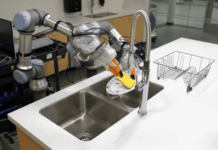A Personal Journey and the Power of Technology in the Fight Against Alexander Disease
In the realm of rare diseases, Alexander Disease (AxD) stands out as one of the most challenging for affected families. A father, who initially had no medical or biological background, has found himself stepping into an unexpected role as a board member of End AxD. This organization is dedicated to advancing research and finding a cure for this rare condition. His journey highlights how technology can bridge gaps between the scientific community and the families seeking answers.
The Journey Begins
For this father, the journey began with a deep desire to understand the condition affecting his child. Armed with only determination and a willingness to learn, he sought ways to contribute to the scientific efforts surrounding AxD. His involvement with End AxD opened doors to scientific conferences and fundraising initiatives aimed at enabling the testing of promising research. What started as a personal quest for understanding transformed into a commitment to aid the scientific community in its pursuit of a cure.
The Role of Technology
Technology has played a pivotal role in this journey, serving as a bridge between families and the scientific world. It has enabled this father to connect with researchers and experts in the field, fostering collaboration and the exchange of ideas. This collaboration is crucial, as AxD is part of a group of rare, genetic disorders known as Leukodystrophies, which affect the white matter of the brain.
The potential of technology extends beyond communication and collaboration. Artificial intelligence (AI) is revolutionizing fields such as medicine, genetics, biology, and drug discovery. Google DeepMind’s AlphaFold, in collaboration with Isomorphic Labs, is at the forefront of this revolution. AlphaFold’s ability to predict protein folding has immense implications for drug development. Understanding protein structures is vital for designing effective treatments, and AI-driven tools like AlphaFold are accelerating this process.
Isomorphic Labs is leveraging cutting-edge computational and AI methods to push the boundaries of therapeutic research. By accelerating drug discovery, they are paving the way for biomedical breakthroughs and the development of treatments for devastating diseases. This includes rare conditions like AxD, which historically receive limited attention and funding.
Advancing Scientific Discoveries
Google’s introduction of an AI co-scientist marks another significant milestone in accelerating scientific discoveries. This AI tool is designed to assist researchers in finding cures for a wide range of diseases, including rare ones like AxD. By automating and enhancing the research process, AI co-scientists can help scientists achieve faster breakthroughs, offering hope to families affected by rare diseases.
The father’s gratitude extends to the many scientists dedicated to helping families like his. He acknowledges the empowering role that technology, particularly AI, has played in his journey. Through the use of tools like AlphaFold and AI co-scientists, he hopes to contribute to advancing research and finding a cure for AxD.
Supporting Breakthrough Research
For those interested in supporting breakthrough research on treatments for Alexander Disease, End AxD is a valuable resource. The organization is committed to raising funds and awareness to drive scientific efforts forward. Their website, EndAxD.org, provides information on how to get involved and support their mission.
To better understand Leukodystrophies, the group of diseases to which AxD belongs, ULF.org offers comprehensive resources. Additionally, the Waisman Center’s Alexander Disease Lab provides insights into the science behind Alexander Disease, offering valuable information for those seeking to learn more.
Acknowledgments
The journey towards finding a cure for Alexander Disease is a collaborative effort that involves numerous dedicated professionals. Special thanks are owed to Dr. Amy Waldman, a Neurologist at the Children’s Hospital of Philadelphia, Dr. Corina Amor, an Assistant Professor at Cold Spring Harbor Laboratory, and her team at the Amor Lab. Their contributions, along with the efforts of Pranam Chatterjee, Ph.D., Assistant Professor of Biomedical Engineering at Duke University, and Albee Messing, V.M.D., Ph.D., Professor Emeritus of Neuropathology in the Department of Comparative Biosciences, are invaluable. These doctors, scientists, and researchers work tirelessly to unravel the mysteries of AxD and bring hope to affected families.
Conclusion
This father’s journey from a curious parent to an active participant in the scientific community is a testament to the power of technology and collaboration. His story underscores the potential for AI and other technological advancements to revolutionize the way we approach rare diseases. As more families join the fight against conditions like AxD, the hope for a cure becomes ever more tangible. By supporting research and embracing technological innovations, we move closer to a future where devastating diseases like Alexander Disease are no longer a mystery, but a challenge that can be overcome.
For more Information, Refer to this article.


































